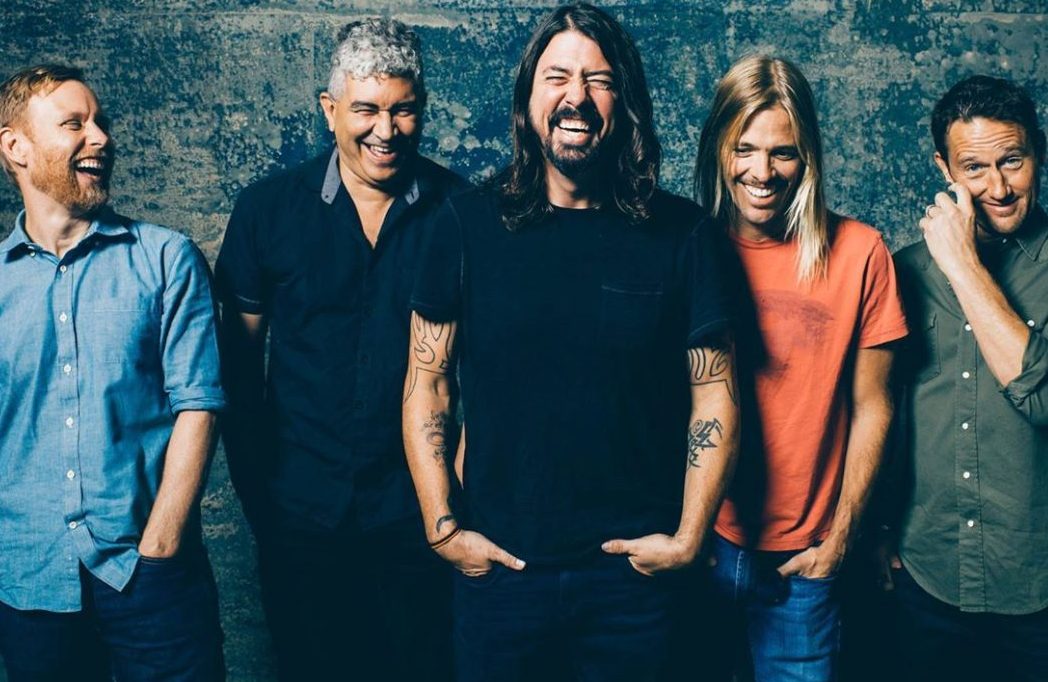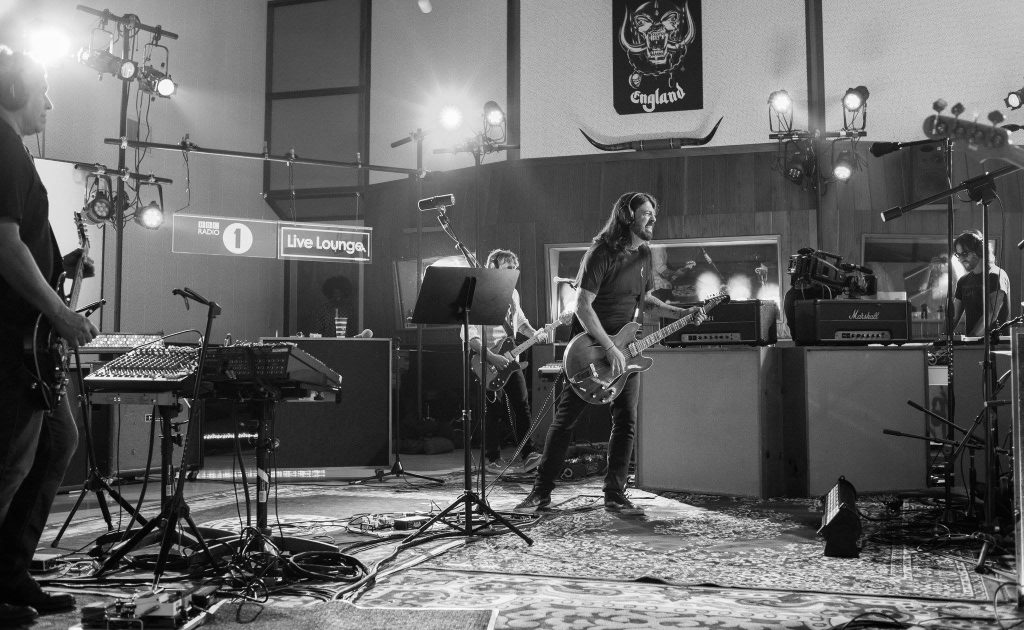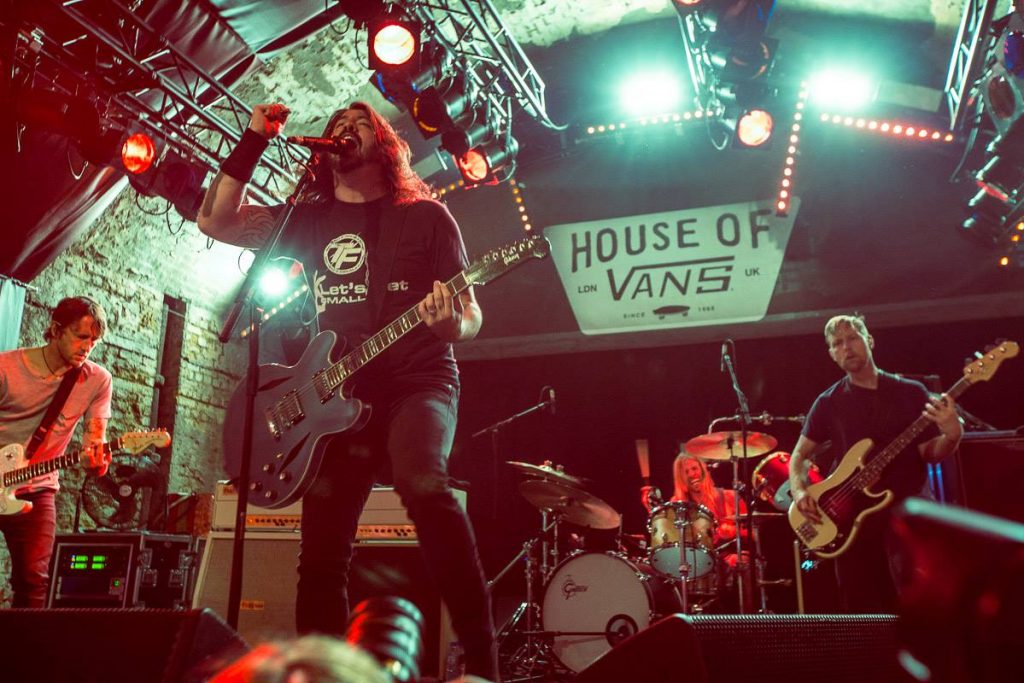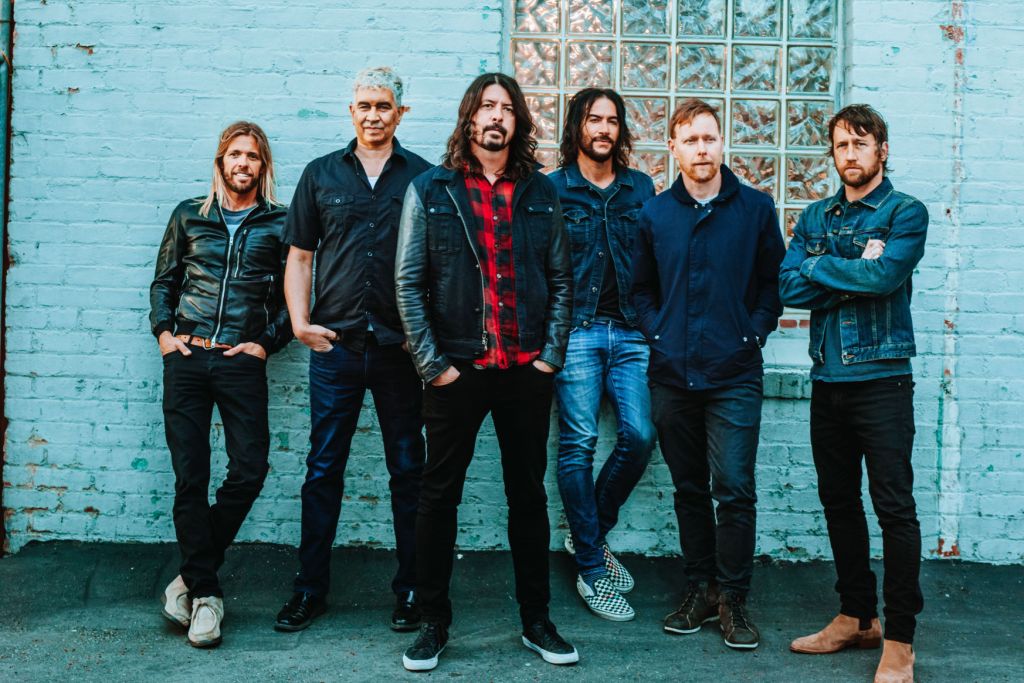How The Foo Fighters Made Their Best Album In 15 Years
Yep, 'Concrete And Gold' is a goodie.

I’m barely five seconds into my chat with Pat Smear and I’ve already managed to confuse him.
The Foo Fighters guitarist and I have only just exchanged ‘hellos’ over the phone, but it appears that something has caught his ear.
“Wait, did you just say ‘how are you going?’ or ‘how are you doing?'” He asks.
I stop short, and admit I can’t really remember, but I was pretty sure I said ‘doing’. I can almost feel his brow furrowing over the phone, and there’s a deafening silence down the line from New York.
“All my Australian friends always saying ‘how ya going’, so I get confused when I hear an Australian say ‘doing,'” he laughs. That brief moment of cross-cultural confusion now sorted, our chat finally gets under way.
Smear — real name Georg Ruthenberg — has been a stalwart of the Foo’s line-up since he was invited to join in October of 1994, barring a small absence from ’97 to ’05. Before the Foo’s beckoned, he lent his thunderous guitar playing to LA punk outfits like Germs and deathrock crew 45 Grave — that is, before he received a call from Kurt Cobain and went on to tour with Nirvana throughout ’93 and ’94.
There are not many guitarists who can claim to have helped shape the sound of modern rock and punk, but Smear can.
Before the release of Foo’s ninth studio album, Concrete And Gold, this Friday, he told Music Junkee about the trials, joys, and tribulations about being at the epicentre of the biggest rock band in the world.
You worked with Greg Kurstin on this record, and he’s not exactly someone that you’d associate with working with big rock bands. Why did you guys make that decision to work with him?
Dave made friends with Greg a few years back because Dave loves his band, The Bird and the Bee. Dave didn’t realise he was Greg Kurstin, The Pop Producer, he just thought he was Greg Kurstin: the awesome LA musician that played keyboards in Beck’s band and grew up on punk rock and weird indie music. He didn’t really know about his alter ego as a pop producer.
At some point after several years of knowing each other as just friends he said, “Hey, maybe we should work together,” and he brought Greg down to meet us all and we all instantly had a thing together, and had him at rehearsal, and he immediately came up with some really cool ideas that we hadn’t thought of, and we realised, “Wow, his brain works differently to ours and he gets us, too, and he’d probably be a good person to work with.”

Photo via Foo Fighters Facebook page
For Concrete And Gold you went back to working simply in one studio. You guys have always tried to push yourselves out of your comfort zone to create your records, like with Sonic Highways when you went around the country recording songs. What was it like going back to the studio and making an album in a normal way?
It was funny when we realised, “Oh, out of our comfort zone, at this point, is something normal.” It was nice making a record at home again, when you get to go home to your family at night and keep regular job hours. For Sonic Highways, we didn’t know if the next town was even gonna have a studio, or if we were gonna have to build a studio in some weird room, which a lot of times we did. It was nice to have that consistency.
Is there ever a worry in the band that after some two decades in the game you’ll run out of ways to push yourself out of that comfort zone?
No, Dave never runs out of ideas. His mind’s always running a mile a minute. We don’t get through a tenth of the ideas that he comes up with because we just don’t have time. One of the amazing things about having him as a bandleader is that we have a guy who wants to work all the time.
There are big themes of anger, desperation, and hope throughout the entire album. How much of it was directly informed by the current political shitstorm in the United States?
I had never thought about it until people who had listened to the record started saying that to me. I don’t ask Dave what inspires him to write his lyrics.
“We don’t do a tenth of the ideas that Dave comes up with because we just don’t have time.”
I’m not really a lyrics guy, so I don’t really notice them as much as people like you do. Whatever it is that inspires him, I’m good with that, you know?
Do you think the music’s — in particular rock and punk — are going to have a particularly bigger part to play in the political sphere over the next few years?
I remember right after the election happened a good friend of mine sent me a text that said, “Well, maybe we can finally get some more good punk bands out of this.” I thought, “Well, maybe. I don’t know.” That’s the only hope out of all this.

Photo via Foo Fighters Facebook page
Boyz II Men appear on one of the heaviest tracks on this album…how on earth did that happen?
It might sound like it’s all of them, but it’s just Shawn Stockman. He just happened to be at the same studio we were recording. Dave just saw him and was like, “Dude! Shawn! What are you doing here?”
At the time we were working on the song ‘Concrete And Gold’. Dave was writing the lyrics for it when Shawn walked up, and Dave was telling him about some vocal idea he had for the song, and then it just kind of hit him like, “Hey, do you want to sing on this?,” and Shawn was like, “Yeah, sure. Let’s do it!” We just dragged him in there and said, “Here’s the song,” and played it for him and said “If you like it you can sing on it.” He goes, “Oh, yeah. I like it. I know exactly what to do.”
“It was funny when we realised, ‘Oh, out of our comfort zone at this point is something normal.'”
It was pretty amazing watching Shawn work and seeing how he put all these parts together. Until you hear them all together you don’t realise that they would fit together.
Greg does the same thing with vocals. He’d have Dave in the room with a piano. He’d say, “Do this line, and do this line,” and we’d be sitting in the control room going, “How does that have anything to do with that?” Once you hear the whole thing at the end you’re like, “Oh, wow! You heard that all in your head?” Shawn was the same way. I guess he had the whole idea in his head and he just worked it out.
How did your guitar playing develop with having Kurstin on board — given that Kustin is mostly known for his synth and keyboard work. How did he direct your playing for this record?
The best thing for me about Greg was that I really like to show up unprepared sometimes to the studio, just to see what happens. When I would show up to do a song unprepared, I’d just be like, “I got nothing, Greg. What do you think?” He would steer me in these directions that I wouldn’t think of, and I loved that.
It was great, and it made me want to show up unprepared just to see where it would go and where he would take me.
—
Foo Fighters’ new album Concrete And Gold is out this Friday through Sony Music.
—
Jules LeFevre is Staff Writer for Music Junkee and inthemix. She is on Twitter.
